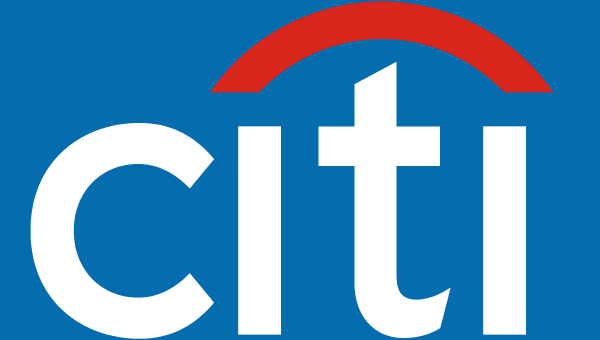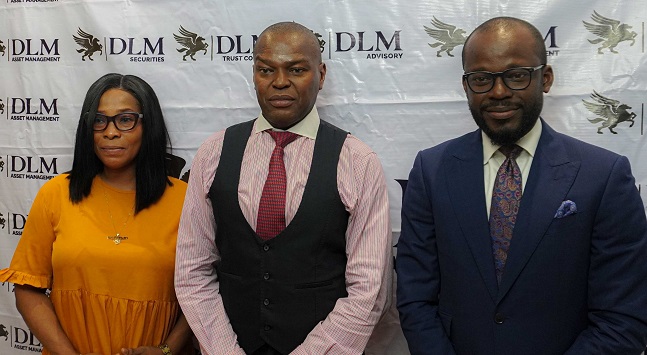E-Financial
Citi Bank Launches New Report on Holistic Digital Policy

Citi bank has launched its latest Global Perspectives & Solutions (Citi GPS) report titled, “Holistc Digital,” in its bid to assist policy makers on the process of moving to a more digital economy.

The report sets out a number of focus areas designed for countries and governments to assist in the process of moving to a more digital economy, including artificial intelligence (AI), inclusive finance, digital infrastructure, private sector incentives, and regulations.
Citi bank in a statement noted that each nation state develop and implement a Holistic Digital Policy that complements monetary and fiscal goals and facilitates sustainable economic growth and inclusion.
It goes on to explain that Holistic Digital Policy also seeks to incentivise and align other stakeholders such as corporates, financial institutions, civil society and individuals to achieve the collective economic and UN Sustainable Development Goals.
It outlines five focus areas that adopted alongside digital policy including digital infrastructure, data, AI and biotech, technology monopoly, and digital finance.
Naveed Sultan, Chairman, Institutional Clients Group, Citi, stated: “We believe that we are at a unique point in time where there are major transitions underway, driven by varied and complex externalities and the rapid development of a broad range of general purpose technologies.
“We therefore need new policy tools and business approaches to address the challenges and opportunities presented by these externalities. We believe that a Holistic Digital Policy is a new tool that will complement monetary and fiscal policies, which are currently showing signs of stress, and also improve their efficacy.”
Sultan added: “There is evidence that countries which have established a holistic approach to digital policy and execution have realized significant economic, social, and political benefits. These countries have also seen a thriving public private sector collaboration.
“That’s in addition to continuing to engage in cross-agency, cross-government, and private sector collaboration on topics such as the development of central bank digital currencies, cybersecurity, and data privacy. Ultimately, forward-thinking governments need to take decisive steps to close the gaps in digital skills, infrastructure, and research and development.”
The report stated that to successfully adopt Digital Policy, governments should establish frameworks for global collaboration whilst pursuing long-term visions, inspired by the ESG concept of cross-stakeholder collaboration to achieve sustainable and equitable economic growth.
Founding Partner, Digiteccs Associates, Dalibor Vavruska, stated: “The technological revolution is improving the efficiency of organizations across sectors and countries, is empowering economic inclusion, and could provide solutions to systemic challenges such as climate change.
“However it also presents risks such as job displacement together with other adverse impacts and a breakdown of global governance. Therefore, It is important that countries and governments work together to shape these technologies to optimize the outcome and manage the risks.”
E-Financial
S&P Global Ratings Downgrades Ecobank Nigeria’s Credit Rating to CCC-, Outlook Negative

Ecobank Nigeria’s long-term issuer credit rating has been downgraded to ‘CCC-’ from CCC, with the outlook placed at negative by S&P Global Ratings. This is a resultant effect of the $150 million bond buyback offer on the bank’s $300 million Senior Unsecured Eurobond.

Part of the tender offer made by Ecobank includes an early tender premium of $12.50 for every $1,000 in principal (equivalent to 1.25%), with the anticipated settlement date set for July 8, 2025. The offer also requests bondholders’ consent to eliminate the capital adequacy covenant on the outstanding notes.
These actions also led S&P to downgrade the $300 million Eurobond from ‘CCC’ to ‘CCC-’. Although S&P notes that it does not consider the tender offer a distressed debt restructuring.
However, this assessment is at risk of changing if the bank does not receive the promised capital injection from the parent group, Ecobank Transnational Incorporated (ETI).
Following the naira devaluation, Ecobank was unable to meet the regulatory Capital Adequacy Ratio (CAR) requirement, as its CAR dropped to 7 per cent. This was below the 10 percent regulatory minimum. The breach of the CAR caused the bank to seek the consent of its bondholders to pause the capital adequacy notes on the Eurobond notes till September 2025.
Following this development, the bank received a $50 million prepayment on promissory notes from its parent company, ETI, along with early repayments on certain foreign currency loans. However, it has been insufficient in restoring the capital adequacy to regulatory levels.
According to S&P, the bank is expected to receive another $50 million capital injection from its parent group before August 2025. However, the ratings agency notes that if the bank is unable to receive this capital injection, it will inevitably default on its bonds. A situation that would cause a further downgrade to ‘CC’.
It was recommended that Ecobank Nigeria consider raising $150 million through additional Tier-1 instruments to strengthen its liquidity buffers. Additionally, the bank was advised to intensify efforts to recover its foreign currency-denominated loans.
E-Financial
Sofri Rejigs Digital Platforms for Better Customer Experience

Sofri, Powered by Links Microfinance Bank plans a massive rollout of Point of Sale, PoS terminals for merchants and agency banking in the third quarter of this year.

This is coming against the backdrop of the banks revamp of its digital platforms to support better customer experience.
Paul Adebayo, managing director, Sofri, said the bank is technology and purpose-driven, with focus on financial inclusion and sustainability. As well with the determination of making banking simpler, inclusive, and impactful.
He said that the revamped mobile app features, faster onboarding, cleaner interface, real-time alerts, enhanced security and seamless loan applications.
“Our corporate internet banking Launched for SMEs and institutional clients features, secure payments, transfers, account management and enhances business banking experience.
“Laying the groundwork for greater reliability, product innovation and operational efficiency is our new core banking infrastructure. This change enables us to scale faster and serve customers better.
“Our Terminal Management System (TMS) improves the performance, uptime, and remote monitoring of our POS terminals. This ensures merchants and field agents enjoy better stability, quicker settlements, and stronger support,” he added.
On sustainability impact, Adebayo, added that Sofri is embedding ESG principles into its lending and operational models — from offering green financing options, to supporting waste-to-wealth entrepreneurs, and making inclusive finance part of Nigeria’s circular economy.
Sofri is a trademark of Links Microfinance Limited (Links Mfb). Links Mfb is licensed and regulated by Central Bank of Nigeria (CBN) and deposits insured by the Nigeria Deposit Insurance Corporation (NDIC). Links Mfb is a member of DLM Capital Group, owners of DLM Asset Management as regulated by the Securities and Exchange Commission (SEC).
E-Financial
DLM Group Unveils Innovative Sovereign Bond Backed Composite Notes

Current market research has confirmed that buyside investors are increasingly focused on high-growth sectors such as small businesses and consumer lending— sectors that fuel both the demand and supply sides of the economy.

However, capital allocation to these areas requires robust risk mitigation frameworks to preserve principal and ensure returns that are not just economically viable but outpace inflation.
Against the backdrop that DLM Capital Group has developed an innovative solution – the Sovereign Bond Backed Composite Notes (SBCNs) to meet this critical economy needs.
According to Sonnie Babatunde Ayere, the Group CEO of DLM Capital Group, “We believe that the consistent issuance of SBCNs by qualified entities will play a key role in de-risking corporate bond portfolios.
“By blending sovereign-backed security with enhanced yield exposure, portfolio managers gain a rare opportunity to simultaneously increase portfolio safety and performance”.
The first of its kind fixed income product combines the security of direct sovereign bond-backed principal protection, such as FGN Bonds, with the enhanced yield potential of corporate and consumer lending cash flows. This hybrid structure, the first of its kind in the local market, merges public-sector credit safety with private-sector income generation.
The instrument is designed as such that the private sector credit tranche will be secured by the FGN-bonds, which will be the senior tranche.
The N30 billion Sovereign Bond Backed Composite Notes issued by DLM Funding SPV Plc is being packaged as a AAA-rated note. With a held-to-maturity yield of 49.9 percent, the notes are designed to be attractive to institutional investors seeking a balance between capital preservation and superior returns.
Sonnie Babatunde Ayere, noted about the SBCN, “For asset managers, it enhances portfolio quality, improves credit profiles, supports diversification, and delivers competitive returns.
In a media parley describing the instrument, Ayere highlighted the role of the instrument in driving credit expansion to the underserved private sector. He highlighted how the note could help drive institutional capital into sectors that were previously considered too risky.
“By channeling domestic capital into these critical but underserved sectors without exposing investors to excessive risk, it becomes possible to mobilize funding for parts of the economy that have long been neglected.” He added.

 Telecom1 day ago
Telecom1 day agoMTN Says New N6.98 USSD Charge Won’t Affect Airtime Recharge

 General News1 day ago
General News1 day agoStudy Reveals 7% of Industrial Organizations Tackle Vulnerabilities Only When Necessary

 General News1 day ago
General News1 day agoNITDA, NCFRMI Forge Strategic Alliance for Inclusive Digital Transformation of Displaced Nigerians

 E-Financial1 day ago
E-Financial1 day agoSofri Rejigs Digital Platforms for Better Customer Experience

 Telecom1 day ago
Telecom1 day agoNnaemeka Ani Calls on African Techies to Rewrite the Narrative

 Telecom1 day ago
Telecom1 day agoCrypto Scam Unmasked: U.S. Recovers Record $225m in Global Fraud Bust

 E-Financial1 day ago
E-Financial1 day agoDLM Group Unveils Innovative Sovereign Bond Backed Composite Notes

 E-Financial1 day ago
E-Financial1 day agoFidelity MD,Onyeali-Ikpe Champions Lifelong Learning and Sisterhood for Women’s Career Growth



























